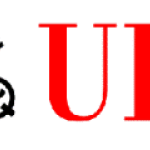- Industri: Financial services
- Number of terms: 25840
- Number of blossaries: 0
- Company Profile:
UBS AG, a financial services firm, provides wealth management, asset management, and investment banking services to private, corporate, and institutional clients worldwide.
Banknoten und Münzen im Umlauf im privaten Sektor der Wirtschaft ebenso wie Giro (löschen) von Handel, Industrie und der Banken bei der Zentralbank gepflegt gleicht. Ein anderer Name ist Zentralbank Geldmenge.
Industry:Banking
Spezielle Institution eingerichtet, um die Ausgabe von Pfandbriefen und gewähren langfristige Darlehen an seine verbundenen Banken. Zwei solche Institutionen wurden 1930, nämlich Mortgage Bond Spitzeninstitut der schweizerischen Kantonalbanken und die Bond-Hypothekenbank der Schweizer Hypothek Institutionen in der Schweiz gegründet.
Industry:Banking
Eine Erklärung, wonach eine Person, die Ersatz-Instrumente auf den Verlust von Wertpapieren, Gutscheine oder Sparbücher erhalten hat verpflichtet, die Bank oder das Unternehmen zu entschädigen, für jede missbräuchliche Nutzung der verlorene Dokumente betroffen.
Industry:Banking
Auch: Tochtergesellschaft. Rechtlich selbständige Unternehmen, das von einem anderen Unternehmen, seine Muttergesellschaft gesteuert wird. Die Tochtergesellschaft wurde gegründet von der Muttergesellschaft oder von es und ist Teil einer Unternehmensgruppe übernommen.
Industry:Banking
Nach der Entscheidung des Europäischen Rates am 16. Juni 1997 zum Einrichten eines Wechselkursmechanismus (WKM II) in der dritten Stufe der Wirtschafts- und Währungsunion des Europäischen Währungssystems (EWS) abgelöst. Dieser Wechselkurs-Mechanismus soll gewährleistet Stabilität und Solidarität in Bezug auf die Wechselkurse zwischen diesen Ländern, die den Euro als Währung eingeführt haben und diejenigen, die nicht haben. Hauptziel: übermäßig große Wechselkursschwankungen zwischen Euro und den Währungen der nicht teilnehmenden Nationen zu verhindern.
Industry:Banking
(1) Value of an investment fund unit corresponding to the market value of the fund on a set reference date, minus liabilities and divided by the number of units outstanding.
(2) Business management: market value of the fixed and current assets of the company to be valued. See also intrinsic value.
(3) Options: positive difference between the price of the underlying and an option's strike price.
(4) Real estate: value of land and buildings.
Industry:Banking
Four bodies supervise banking activities in Switzerland: the Federal Banking Commission (highest supervisory authority), the statutory auditors (as prescribed by Swiss banking legislation), the internal auditors, and the auditors as prescribed by the Swiss Code of Obligations.
Industry:Banking
Also: check card (US). Card issued by a bank for accountholders who are members of a cheque system. The bank promises to cash cheques up to a certain amount provided that the signature and account number on the cheque and the cheque card are identical and the cheque card number is noted on the back of the cheque.
Industry:Banking
Situation where the share capital of a company has only one class of share. The term relates to the earlier practice of dividing shares into (preferred) registered and bearer shares. By simplifying the share structure management demonstrates that it is taking the interests of shareholders into account, is treating shareholders equally and seeks to avoid conflicts of interest between different classes of shareholder.
Industry:Banking
Also: money stock. The stock of money that exists in an economy at a given time. Stabilizing prices by steering the money supply is an important economic policy target. In Switzerland, money supply policy measures focused for some years (until 1978) on M1 (circulation of coins and notes in the non-banking sector and domestic non-bank demand deposits at banks and in postal checking accounts). In 1980 the Swiss National Bank began setting a new money supply target based on the adjusted central bank money supply. Factoring in further monetary aggregates (time deposits, savings) gives M2 and M3. The latter has served as reference parameter for the Swiss National Bank since 1997.
Industry:Banking
